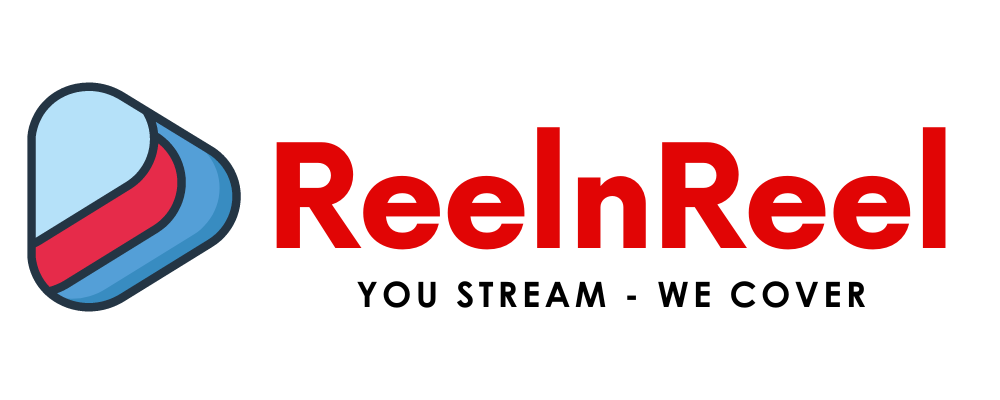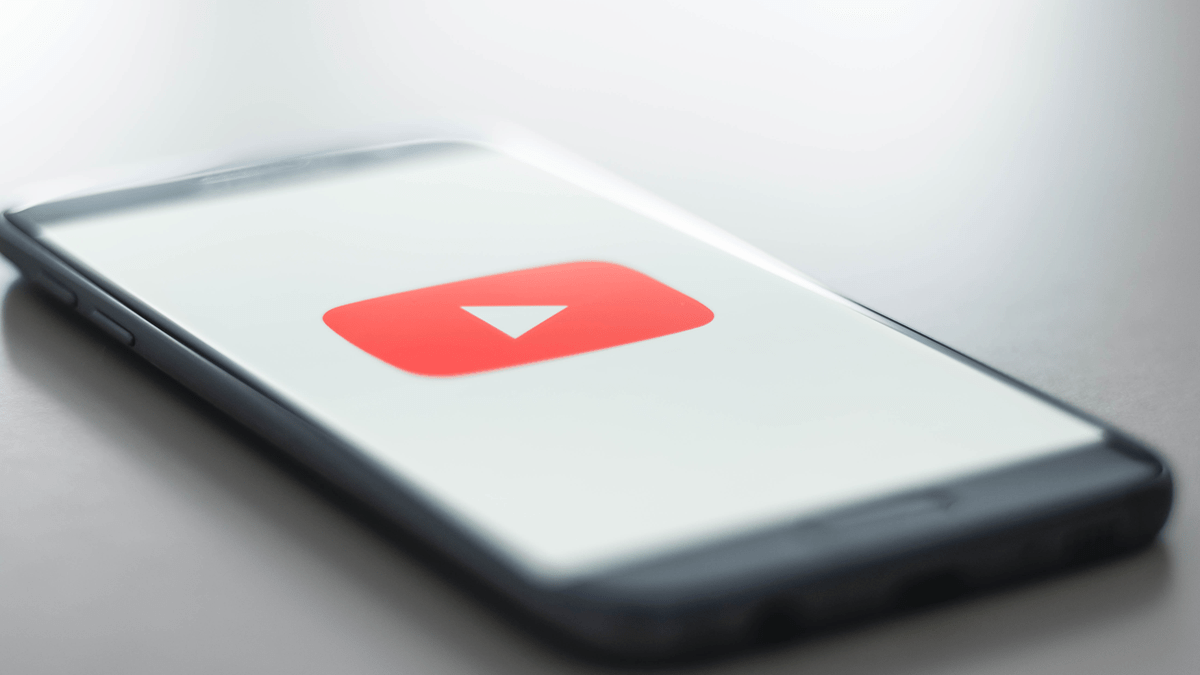In today’s fast-paced digital world, video marketing has become a powerful tool for businesses to connect with their audience and drive engagement. However, with the rising competition and changing consumer behavior, it has become increasingly challenging for marketers to create impactful video content that stands out.
This is where AI-powered video marketing comes into play. AI technology transforms how video content is created, distributed, and analyzed. We will dive into the role of AI in future-proofing your video marketing strategy.
In today’s digital era, video marketing is one of the most effective ways to engage with your audience. It enhances your brand’s visibility, elicits emotions, and increases user engagement. But the question arises: How can we make video marketing even more effective? Well, AI-powered video marketing is the answer.
AI integration in video marketing will assist in analyzing user behavior and also help in providing personalized and relevant content to users. We will explore the different ways AI can future-proof your video marketing strategy.
How AI is Revolutionizing Video Marketing Strategies
Artificial Intelligence (AI) is redefining how businesses approach video marketing strategies. With AI-powered tools, brands can now create more personalized content, customize their video ads for different audiences, and track their performance to optimize the returns on investment.
One of the most significant ways AI revolutionizes video marketing is by enabling brands to create hyper-personalized content for their users.
By analyzing large data sets on users, such as their search history and online behavior, AI algorithms can create videos tailored to individual needs. This level of personalization ensures that customers are more likely to view the entire video and engage with its content.
Furthermore, AI-driven video ads are helping brands reach the right audience at the right time.
AI algorithms can analyze factors such as user demographics, search history, and browsing behavior to determine the ideal conditions for delivering the video ad to the relevant audience.
This customization level also helps brands reduce the chances of delivering irrelevant ads, increasing click-through rates and conversions.
Crafting Engaging Video Content with AI Assistance
In today’s digital age, video has become the undisputed king of content. 87% of marketers today use video as a marketing tool, and with good reason.
Video content can evoke emotion, convey messages effectively, and engage audiences like no other form of content can. However, engaging video content can be daunting, particularly if you need more resources, expertise, or time.
Fortunately, with artificial intelligence (AI) technology’s advancement, engaging video content has become easier and more accessible.
AI software can analyze data, identify patterns, and even predict the success of a video campaign. In this context, AI can be an indispensable tool for crafting highly effective and engaging video content.
Using AI to Personalize Video Marketing Campaigns
In online advertising, video marketing is a highly effective tool for brands to engage with their target audiences compellingly and memorably.
However, with the high content available to consumers, it can be challenging for brands to stand out and reach their desired outcomes. Artificial intelligence (AI) is becoming an increasingly popular tool for video marketing campaigns to combat this challenge and personalize their messages to individual audiences.
AI can function in many ways to enhance personalized video marketing campaigns. By analyzing consumer data, AI can identify patterns and trends that brands can use to target their messaging.
It can also create customized content that resonates with each audience member. For example, AI can use data on an individual’s preferences to suggest relevant products or services they may be interested in purchasing.
Mastering AI-Generated Video Editing Techniques
In the rapidly advancing digital age, artificial intelligence has become an integral part of our daily lives, transforming how we create and consume content.
A prime example of the innovative applications of AI is the evolving field of video editing. In recent years, the capabilities of AI-generated video editing techniques have improved dramatically, allowing for greater efficiency, accuracy, and creativity in producing high-quality videos.
One of the primary advantages of AI-generated video editing is the ability to automate time-consuming tasks such as organizing footage and trimming clips. AI algorithms can analyze the content of the video, identify key moments, and trim them down to the desired length. This saves time and ensures consistency and precision in the final product.
How to Optimize Video SEO with AI Algorithms
Video content has become crucial in businesses’ marketing strategies across all industries. However, more than simply producing and uploading videos to your website is required to drive traffic and engagement.
Optimizing your video content for search engines is crucial to get the most out of your video content. Video SEO is a complex and constantly evolving process, but with the help of AI algorithms, it can be made much more straightforward and highly effective.
AI algorithms can analyze your videos’ content and viewers’ behavior to create a personalized and dynamic strategy for optimizing your video content.
This includes identifying keywords and phrases relevant to your content and integrating them into your video descriptions, titles, and metadata. AI algorithms can also analyze viewer engagement and behavior data to identify trends and patterns that can inform your video content and strategy moving forward.
Case Study: How AI Transformed a Video Marketing Campaign
Artificial Intelligence (AI) has revolutionized various industries and functions, but none more so than marketing. AI has significantly transformed how companies approach video marketing campaigns in recent years.
One of the most notable examples of this is the use of AI by a world-renowned fast food chain, which saw a significant boost in engagement with its video marketing campaigns after integrating AI into its marketing strategy.
Before AI was incorporated into the company’s marketing campaigns, it struggled to gain traction among its target audience despite putting significant effort into creating high-quality content.
However, after implementing AI technology, the company saw an astounding 50% increase in engagement numbers.
Real-Life Examples of Brands Gaining Traction with AI Video
Artificial intelligence (AI) has taken the world by storm, especially in the marketing industry. Brands use AI to produce more engaging, personalized, and human-like videos. Here are some real-life examples of brands using AI to gain video traction.
Coca-Cola
Coca-Cola is the world’s largest non-alcoholic beverage company, always looking for innovative ways to promote its brand. In 2018, Coca-Cola teamed up with the AI video platform Wibbitz, to create a series called “Dear Future.”
The series showcased short stories of people sharing their hopes and dreams for the future, emphasizing sustainability. The videos were powered by AI and personalized using data from the viewer’s location, gender, and age. The campaign was a massive hit, with over 8.5 million views and a 2.9% engagement rate.
L’Oreal
L’Oreal is the world’s largest cosmetics company, and they’ve been using AI for a while now. They recently collaborated with ModiFace, an AI-powered beauty platform, to create a virtual makeup try-on experience.
The try-on experience allows users to upload their photos and try on different makeup products without leaving their homes. The AI technology ensures that the makeup looks realistic on the user’s face and matches their skin tone. The virtual try-on experience has increased L’Oreal’s online sales by 49%.
Netflix
Netflix is the world’s leading streaming service, with over 200 million subscribers worldwide. They’ve been using AI to personalize their recommendations to users for some time now. However, in 2020, Netflix took it further by creating an AI-powered video trailer for their show, “The Witcher.”
The trailer was re-cut using data about the viewer’s preferences to show them the most engaging parts of the show. The AI-powered trailer increased user engagement by 20% and the show’s viewership by 30%.
In conclusion, AI technology has revolutionized the marketing industry, and these examples show how brands use it to produce more engaging and personalized videos. As AI technology advances, we can expect to see even more impressive uses of AI in marketing.
The Role of AI in Future-Proofing Your Video Marketing
As digital channels dominate the marketing landscape, brands must constantly innovate to stay ahead of the competition.
One such innovation gaining traction in the industry is using Artificial Intelligence (AI) in video marketing.
By leveraging AI, brands can future-proof their marketing efforts and gain a competitive edge in a constantly evolving landscape.
AI-powered video marketing offers many benefits, including the ability to create personalized content at scale.
Using machine learning algorithms, brands can analyze consumer data and behavior patterns to develop hyper-personalized video content that resonates with their audience. This improves engagement rates and helps brands build deeper connections with their customers.
Harnessing AI for Data-Driven Video Marketing Insights
Video marketing has undergone significant changes in the past few years, with technological advances providing new opportunities and challenges.
The advent of Artificial Intelligence (AI) has revolutionized the way businesses approach video marketing, enabling them to harness data-driven insights to optimize their campaigns and achieve tremendous success.
AI technology allows businesses to analyze vast data, from social media metrics to website traffic, to gather insights into their target audience. This data can create highly targeted and personalized marketing campaigns that resonate with specific demographics, increasing engagement and conversion rates.
One of the most powerful applications of AI in video marketing is automated content creation.
By analyzing existing content and audience behavior, AI algorithms can create highly targeted videos in real-time, ensuring that businesses are always in tune with the latest industry trends and developments.
Demystifying AI-Powered Video Creation Process
Artificial intelligence (AI) has revolutionized various industries, including marketing. One of its most significant contributions is the development of AI-powered video creation, which has simplified the design of high-quality videos for marketing purposes.
The AI-powered video creation process involves several steps, including identifying the target audience and the video’s objective.
The AI algorithm then analyzes the provided data to determine the video’s most compelling visual and audio elements. From there, the AI system selects appropriate footage and sound bites from a vast library and edits them into a cohesive and persuasive marketing video.
The AI system also allows customizing visuals and audio elements to match the brand’s unique style and voice. The resulting video is visually stunning and optimized for maximum engagement and impact.
Exploring the Benefits of AI in Video Marketing
Improved Targeting
Artificial intelligence (AI) can be used to improve the targeting of video marketing campaigns. AI-powered algorithms can analyze user demographics, interests, and past behaviors to determine which audiences will most likely engage with a brand’s videos.
This allows marketers to create more targeted campaigns tailored to specific audiences and maximize the reach of their videos.
Automated Content Creation
AI can also be used to automate the creation of video content. AI-based tools such as natural language processing and image recognition can automatically generate videos from text or images, saving marketers time and resources while still producing high-quality content.
Personalization
AI can also be used to personalize video content for individual viewers. AI-powered algorithms can analyze data such as viewing history, preferences, and interests to deliver personalized messages tailored to each viewer’s unique needs and interests. This helps marketers ensure that their videos are relevant and engaging for each viewer.
Optimized Placement & Distribution
AI can also optimize the placement and distribution of video content across platforms. AI-based algorithms can analyze user engagement, viewing habits, and platform trends to determine where a brand’s videos should be placed to maximize visibility and engagement.
Enhanced Analytics & Reporting
AI-powered analytics tools can also provide enhanced insights into how viewers engage with a brand’s video content.
These tools use AI algorithms to analyze data such as viewership metrics, engagement levels, sentiment analysis, and more to provide detailed reports on how viewers respond to a brand’s videos.
Improved Conversion Rates
Using AI-driven insights from analytics tools, brands can optimize their videos for higher conversion rates by testing different versions of their content to determine which ones perform best with viewers.
This helps brands create the most effective video content possible for maximum conversions from viewers into customers or leads.
Cost Savings
Using AI-enabled automation tools for creating video content or optimizing placement & distribution can help brands save time and resources by streamlining processes that would otherwise require manual labor or expensive software solutions. This allows brands to reduce costs while still producing high-quality results from their video marketing efforts.
Increased ROI
Using AI for improved targeting, personalization, optimization, analytics, conversion rate optimization, cost savings, etc., will ultimately lead to an increased return on investment (ROI) from a brand’s video marketing efforts.
By leveraging the power of AI, brands can increase their ROI by ensuring that their videos reach maximum visibility with relevant audiences who will then convert into customers or leads.
Challenging Common Misconceptions About AI in Video Marketing
Artificial Intelligence (AI) is transforming many business areas, including video marketing. Far too often, however, it is misunderstood and subject to common misconceptions.
AI can positively impact video marketing strategies, providing unparalleled insights and efficiencies. In this article, we will challenge some of the most common misconceptions about AI in video marketing, exploring its capabilities and potential for growth.
One of the most common misconceptions is that AI in video marketing is essentially just using algorithms to churn out content. This is far from the truth.
Though AI technology does indeed utilize algorithms, it also involves much more than this: it incorporates deep learning, natural language processing, and other advanced capabilities that have the potential to revolutionize video marketing strategy.
Why Embracing AI is Essential for Video Marketers
Embracing AI technology in video marketing has become essential for companies of all sizes and industries, as it has the potential to revolutionize how businesses reach and engage their target audiences.
Artificial intelligence offers advanced analytics, personalization, and automation tools that can help video marketers create more effective campaigns and achieve better performance results.
One of the main advantages of AI in video marketing is its ability to provide in-depth insights into audience behavior and engagement.
With the help of machine learning algorithms, video data can be analyzed to identify patterns and trends in viewer interactions, such as which parts of the video are most frequently watched or skipped and what topics or themes are most appealing to the target audience.
This information can refine and optimize video content, making it more engaging and impactful.
AI-Generated vs. Human-Created Videos: A Comparative Analysis
Artificial intelligence (AI) has revolutionized many industries, including video production. AI-generated videos are becoming increasingly prevalent and have been hailed as an efficient and cost-effective way to create engaging content.
However, many people are still loyal to human-created videos, arguing that they have a certain level of authenticity and creativity that machines cannot replicate. This article will delve deeper into this debate and provide a comparative analysis of AI-generated vs. human-created videos.
To begin with, it is crucial to understand what each of these terms means. AI-generated videos are created using artificial intelligence, machine learning, and natural language processing technologies.
These videos are typically produced by algorithms that analyze large images, audio, and text datasets to generate relevant and engaging content.
On the other hand, human-created videos refer to videos created by professional videographers, editors, and producers who use their creativity and expertise to tell a story and evoke emotions in the audience.
AI Video Analytics vs. Traditional Metrics: Which Is Better?
The evolution of technology has transformed the way businesses operate, particularly in the realm of video analytics.
With the emergence of Artificial Intelligence (AI) in video analytics, traditional metrics such as foot traffic and sales figures are becoming a thing of the past. The question now arises: Which is better – AI video analytics or traditional metrics?
Traditional metrics involve manual tracking and collection of data, which can be time-consuming and prone to human error. However, AI video analytics systems are designed to automate this process, using advanced algorithms to collect, analyze, and interpret large datasets quickly and accurately.
This gives businesses real-time insights into customer behavior, enabling them to make informed decisions on everything from product placement to staffing levels.
Moreover, AI video analytics systems can identify things that traditional metrics cannot. For example, they can recognize individual faces, detect emotions, and predict future behavior based on past interactions.
This level of detail is invaluable for businesses offering their customers personalized experiences while optimizing their operations and ultimately increasing revenue.
AI-Backed Video Marketing Strategies to Try
Artificial intelligence (AI) advancements have significantly impacted video marketing, providing marketers with innovative tools to deliver personalized and engaging content.
The use of AI in video marketing has become exceedingly popular in recent years due to its ability to automate the process of content curation and audience targeting, thereby increasing efficiency and achieving better results. Here are some AI-backed video marketing strategies that businesses can try:
Trends Shaping the Future of AI in Video Marketing
Artificial Intelligence (AI) has revolutionized the marketing industry, enabling marketers to gain deeper insights into consumer behavior and preferences.
Advances in AI technology have given rise to a range of innovative video marketing strategies that have been proven to be highly effective in capturing and retaining audience attention. Here are some trends shaping AI’s future in video marketing.
Personalized Video Content
With AI technology, it is now possible to tailor video content to each viewer’s preferences and behaviors.
This is done by analyzing customer data, such as their search history, social media activity, and previous purchases, and using this information to create personalized videos that are most likely to resonate with them.
Personalization enhances the viewer’s experience and can lead to higher engagement rates and, ultimately, more conversions.
Interactive Video Content
Interactive videos are gaining popularity, thanks to AI technology. These videos contain clickable elements, such as product images, text, and buttons, allowing viewers to engage with the content and better understand the promoted product or service.
AI algorithms can track and analyze the viewer’s interactions with the video to create a personalized experience tailored to their needs and interests.
Automated Video Creation
Creating compelling video content is a time-consuming and labor-intensive process. AI technology can do much of this work by automatically generating and editing video content.
By inputting text and images, AI-powered video creation tools can produce high-quality videos in minutes, saving marketers significant time and resources.
Video Analytics
AI technology is also making it easier for marketers to analyze the performance of their video content. AI algorithms can provide insights into viewer behavior and preferences by tracking metrics such as views, engagement, and conversion rates.
With this data, marketers can improve the performance of their video content by tailoring it to the needs and interests of their target audience.
Case Study: From Average to Viral: AI-Boosted Video Success Stories
Artificial intelligence (AI) technology in the video industry has transformed how people consume and produce videos. This case study will explore how AI-boosted video success stories have turned ordinary videos into viral sensations.
One of the most notable AI technologies used in this field is machine learning, which can identify patterns in video content and suggest improvements to the content creator. This has led to a more personalized user experience and has allowed businesses to target their audience better.
For example, a clothing brand in the UK used machine learning to analyze the viewing habits of their target demographic, allowing them to create videos that would appeal to their audience. The videos that were produced had a 35% higher click-through rate and generated an increase in sales by 20%.
Case Study: AI-Personalized Video Campaign and Conversion Rate
The rising prominence of artificial intelligence (AI) has led many businesses to incorporate it into their marketing strategies. One example is AI-personalized video campaigns, which tailor video content to each viewer’s preferences and interests.
These campaigns can work wonders for conversion rates, providing a more engaging and relevant experience for the viewer leading to increased chances of conversion. Research has shown that personalized video campaigns can increase click-through rates by up to 985%.
To implement such campaigns, businesses can use AI algorithms to analyze vast customer data and generate personalized video content highlighting products or services most likely to appeal to each viewer.
This level of customization improves the viewer experience and helps businesses efficiently allocate resources toward customers who are most likely to convert.
How AI Enhanced Video Recommendation Engines for Better Engagement
Artificial intelligence (AI) has revolutionized the world of video recommendation engines, enabling better audience engagement and satisfaction.
Video streaming platforms like Netflix, Hulu, and Amazon Prime Video use AI-powered algorithms to analyze users’ viewing history and preferences, accurately predicting what content they will likely enjoy.
These recommendation engines then suggest personalized video content to users, creating an immersive experience that drives engagement and satisfaction.
AI-enhanced video recommendation engines employ various algorithms, including collaborative filtering, content-based filtering, and hybrid models, to better understand user preferences and provide accurate predictions.
Collaborative filtering algorithms analyze the viewing history of other users with similar interests, predicting content the user has yet to view but is likely to enjoy.
Content-based filtering algorithms, on the other hand, examine the attributes of the videos the user has watched previously, such as genre, actors, and director, and suggest related videos based on those attributes. Hybrid models combine both collaborative and content-based algorithms to provide more accurate predictions.
Conclusion:
AI-powered video marketing is the future of video marketing. It helps businesses create personalized video content, streamlines video production, enhances video SEO, analyzes video performance, and improves the customer experience.
By incorporating AI-powered solutions, businesses can future-proof their video marketing strategy and stay ahead of the competition. With AI tools and techniques, companies can create impactful, engaging video content that delivers results.
AI-powered video marketing is the future of marketing. With its increasing capabilities and more intelligent algorithms, AI helps in future-proofing your marketing strategy.
Integrating AI in video marketing leads to increased productivity, personalized content, targeted advertising, and improved video SEO. AI provides actionable insights that lead to content optimization and a better experience for the viewer.
By adding AI-powered video marketing to your marketing strategy, you can be sure of engaging your audience and boosting your brand’s visibility. So, if you haven’t considered AI-powered video marketing yet, now is the time to start and future-proof your marketing strategy.





